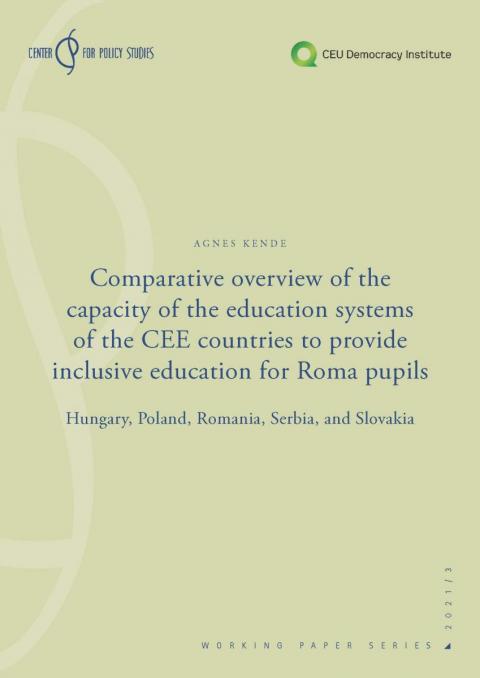Comparative overview of the capacity of the education systems of the CEE countries to provide inclusive education for Roma pupils
The current working paper of the EDUC project is a comparative overview covering five CEE countries, investigating how the education systems can manage the differences among children, with an emphasis on the issue of providing inclusive education for Roma children. Authored by Center for Policy Studies / Democracy Institute researcher Agnes Kende.
Abstract
The paper analyses the degree of inclusivity of the education systems in five different countries: Hungary, Poland, Romania, Serbia, and Slovakia, how the education systems can manage the differences among children, with an emphasis on the issue of providing inclusive education for Roma children. The paper discusses the similarities and differences among the five countries, which, on the one hand, demonstrates the similarities and differences in the various education systems, while on the other, also demonstrates how prejudices towards the Roma people, and the phenomenon of anti-Gypsyism makes the status of Roma people almost uniform in each given education system. While the education systems of the countries observed here – with the exception of Poland – are among the less equitable and more selective systems (especially those of Slovakia and Hungary) – and are thus, sui generis, less able to compensate for social inequalities –, the inclusion of Roma children is further paralyzed by widespread prejudice.
Comparative overview of the capacity of the education systems of the CEE countries to provide inclusive education for Roma pupils (Download)

